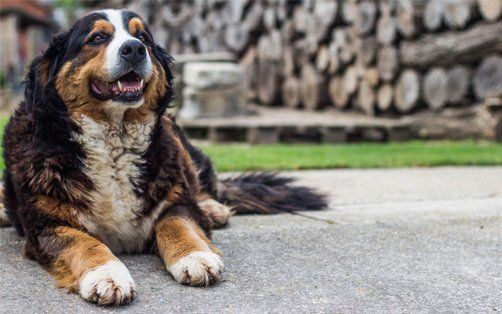5 Reasons to Have Your Dog Professionally Groomed
- By
- •
- 31 Jul, 2017
- •

You work tirelessly to care for your dog, from providing exercise and mental stimulation on daily walks to keeping up with essential vaccinations. When you think about all the things you do to keep your pooch happy and healthy, grooming may seem like one of your lowest priorities.
However, grooming is an important part of canine care, whether you have a short-haired Chihuahua or an Old English sheepdog. In fact, veterinary experts recommend grooming every four to eight weeks, depending on the length of your dog's fur.
In this blog, we list five of the reasons why regular, professional grooming is so important for your pet.
1. Maintain Their Appearance
While looks are obviously not your only concern when it comes to taking care of your dog, maintaining your pooch's appearance can be important. How your dog looks changes the way people perceive him or her.
Dogs that look unkempt or poorly cared for may not get positive attention from unfamiliar people or dogs because these humans feel worried about how the dog might behave, or because other owners see your dog as a potential threat to theirs.
Additionally, if your dog were to become lost or separated from you, he or she would be more likely to be mistaken for a stray with a poorly cared for appearance.
2. Keep Them Clean
As a pet owner, you accept a lot of messes as part of your daily life. But just like training can prevent improper waste elimination, grooming can reduce the amount of fur you have to deal with being shed.
This benefit can be particularly important if one of the humans or other animals in your household has respiratory issues or allergies. Reducing the amount of fur that your pet sheds by itself also means that your floors, linens, and other surfaces stay cleaner, which can improve your peace of mind and shrink your to-do list.
es here. To edit this text, click on it and delete this default text and start typing your own (or paste your own from a different source).To control the color or size of this text, please change the global colors or text size under the Design section from the left menu of the editor.
3. Protect Their Health
During grooming, groomers do cursory physical examinations that include your dog's entire body. These examinations can ensure that medical conditions are identified, diagnosed, and treated as efficiently as possible.
The examinations included with grooming are particularly important when it comes to the most vulnerable parts of your dog's body, like his or her mouth and paws.
If you have a dog with a history of medical problems, prioritize finding a groomer that partners with a vet's office so that you know your chosen groomer has experience with common health conditions.
4. Let Them Socialize
Grooming is an excellent opportunity for your dog to socialize with people. When you do regular brushing at home, you facilitate bonding with your pet. When you take your dog to a professional groomer, you provide an opportunity for your dog to practice staying calm in unfamiliar situations.
In many cases, being at professional groomers also helps dogs get along better with other four-legged friends since grooming salons rarely see just one animal at a time. If your dog is shy or skittish, regular grooming can help him or her adjust to being around people and other pups.
5. Make Them Comfortable
If you live in an area with distinctly different seasons, you may need to alter your pet care routine to account for changes in temperature and humidity throughout the year. Your groomer can help you decide how best to keep your pet comfortable.
Additionally, groomers are often instrumental in identifying common seasonal ailments like dehydration or deicing chemical contamination on dogs' paws.
Don't have a groomer that you and your puppy both love? Come to North Suburban Veterinary Hospital. We offer a full range of grooming services for dogs of all breeds, sizes, and temperaments.

Rabies Is Still Highly Prevalent in the Wild
Rabies Is Easier for a Feline to Contract Than Expected
- The animal hisses and spews saliva into your cat's eyes.
- The animal drips saliva onto an open wound on your cat.
- The animal licks your cat and the saliva enters their mouth, nose, or eyes.
Rabies Can Be Transmitted Quickly and Without Evidence

When you have had a dog for many years, it can come as a shock when they reach about 7 to 9 years old and are suddenly considered to be a senior. However, this is an inevitable part of your dog's life.
Keep Up with Their Dental Care
Watch Out for Signs of High Blood Pressure

Obesity can be just as big a problem for canines as it can be for humans, but many pet owners don't realize how serious a problem it can be. Just like you, your dog can suffer from serious health problems as a result of being overweight.
For example, dogs who are obese are at greater risk of developing diabetes, heart disease, high blood pressure and problems with their liver function. Obesity can also affect your dog's lungs, restricting their ability to expand and making it more difficult for them to breathe. Then there are the quality-of-life issues: an obese dog will have less stamina, less tolerance for heat and a shorter life span.
Luckily, there are things you can be doing to prevent your dog from gaining too much weight and to cut their calories if they're already overweight. Take a look at some useful tips that can help you keep your dog's weight in check.





